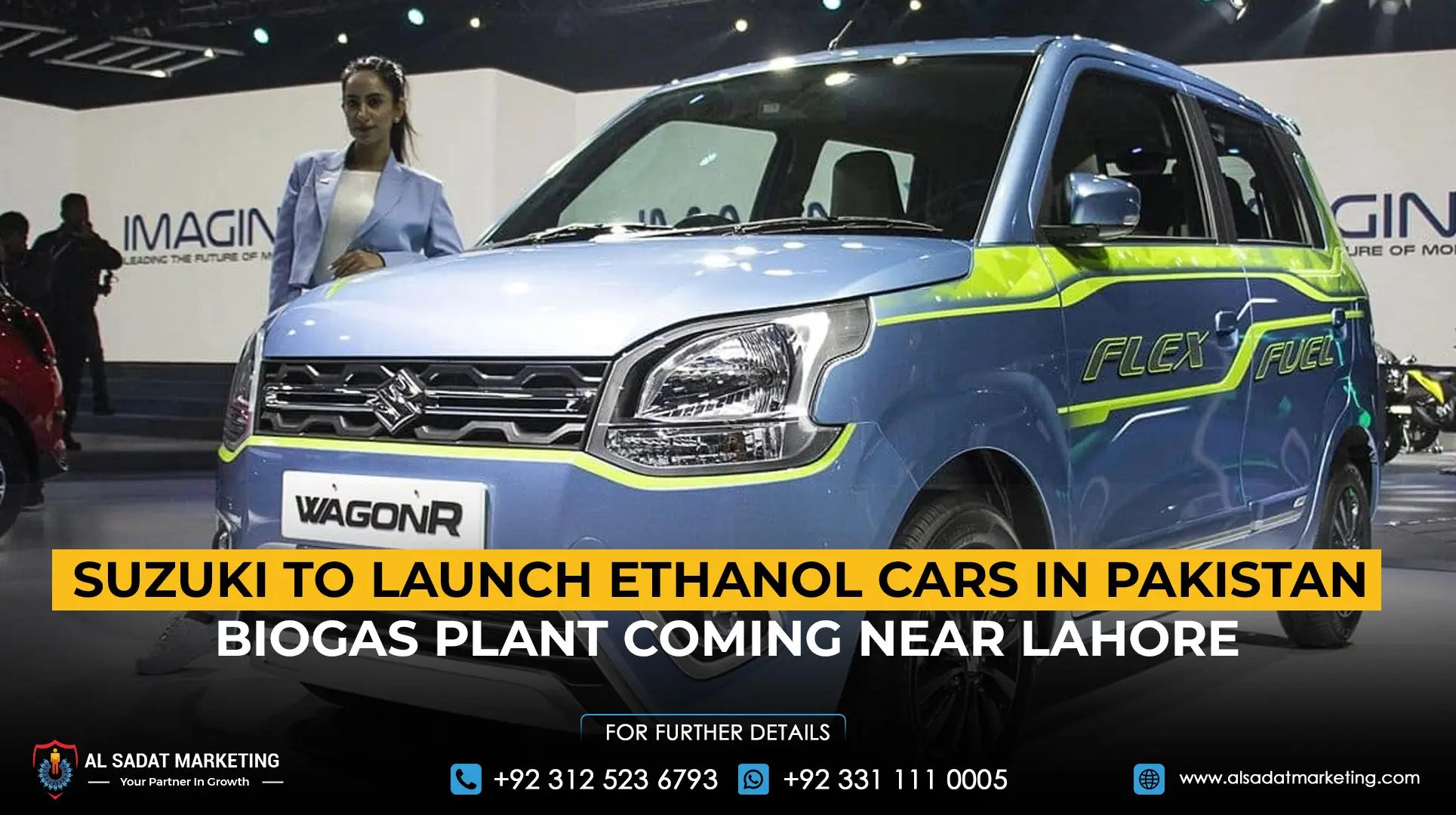In a strategic push to modernize its automotive industry, Pakistan is actively exploring the integration of ethanol-based fuel, localizing auto parts production, and enhancing engine compatibility with alternative fuels. The initiative marks a significant step toward reducing reliance on imports and advancing sustainable transport solutions.
These developments came to light during a recent high-level meeting between Haroon Akhtar Khan, Special Assistant to the Prime Minister (SAPM) on Industries and Production, and Hiroshi Kawamura, CEO of Pak Suzuki Motor Company. The discussions centered around renewable energy projects, electric vehicle (EV) adoption, and new industrial collaborations between Pakistan and Japan.
Also Read: How CPEC is Boosting Property Prices in Haripur & Khanpur
SAPM Haroon Akhtar Khan reaffirmed the government’s strong commitment to clean energy, highlighting ongoing efforts to expand bio-gas and EV infrastructure across the country. He encouraged Pak Suzuki to continue investing in Pakistan’s growing market and welcomed the company’s proactive approach in aligning with national energy and environmental goals.
One notable highlight was Pak Suzuki’s plan to set up a biogas plant in Manga Mandi, near Lahore—a move praised by the government as a model contribution to Pakistan’s renewable energy targets. The project supports the broader objectives of the government’s “Uraan” initiative, which envisions a future of eco-friendly vehicles and sustainable mobility.
Khan also stressed the importance of increased localization in the auto sector, urging manufacturers to use more locally produced components to support the national economy and create jobs.
Hiroshi Kawamura expressed confidence in Pakistan’s economic potential and reiterated Pak Suzuki’s commitment to fostering deeper industrial and technological cooperation between the two countries. He congratulated Haroon Akhtar Khan on his appointment and shared optimism about the long-term growth of Japan-Pakistan industrial relations.
As Pakistan continues to position itself as a hub for green innovation and automotive advancement, collaborations like these are expected to play a crucial role in shaping a cleaner, more self-reliant future for the country’s transportation landscape.










